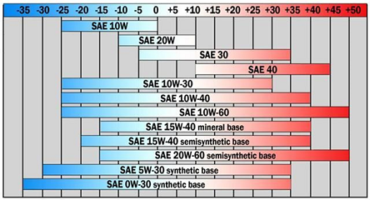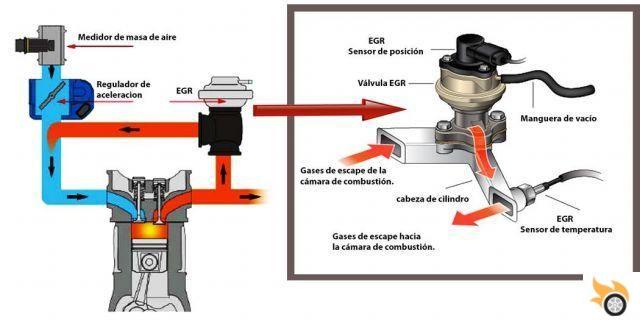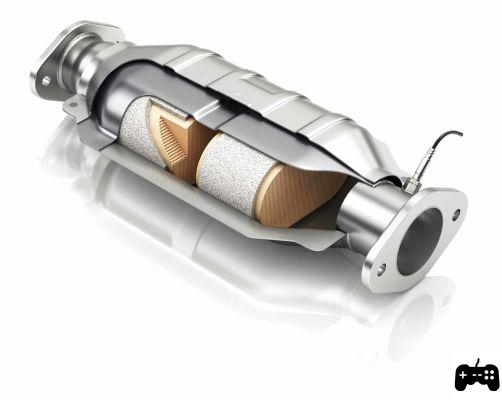
Article: Difference between 15W40 and 20W50 oils
In the world of automobiles, it is important to know the different types of oils and their characteristics to guarantee good performance and care for the engine. Two of the most common oils are 15W40 and 20W50. In this article, we will answer the most frequently asked questions about the difference between these two oils, their density, which one is better, when it is appropriate to use each one, and the main differences between them.
What is 15W40 oil?
15W40 oil is a type of multigrade oil commonly used in car and truck engines. The 15W refers to its cold weather viscosity, while the 40 refers to its hot weather viscosity. This means that 15W40 oil is thinner in cold weather for easier engine starting and thicker in hot weather to protect the engine from friction and wear.
What is 20W50 oil?
20W50 oil is also a multigrade oil used in car and truck engines. The 20W indicates its viscosity in cold climates, while the 50 indicates its viscosity in hot climates. Unlike 15W40 oil, 20W50 oil is heavier in both hot and cold weather. This means that it provides greater protection against friction and wear, but can make it difficult to start the engine in cold weather.
Which is thicker, 15W40 oil or 20W50?
20W50 oil is heavier than 15W40 oil. The viscosity of an oil is measured based on its ability to flow. In the case of these two oils, the number before the W indicates their viscosity in cold weather, where a lower number indicates greater fluidity. Therefore, 15W40 oil is thinner in cold weather than 20W50 oil. However, in hot climates, 20W50 oil is heavier and provides greater protection against friction and wear.
What is the best oil, 15W40 or 20W50?
There is no definitive answer to this question, since the choice of oil depends on several factors, such as the type of engine, weather conditions, and the vehicle manufacturer's recommendations. 15W40 oil is better suited for colder climates, where higher fluidity is required for easier engine starting. On the other hand, 20W50 oil is more suitable for hotter climates, where greater protection against friction and wear is needed. If you're not sure which oil is best for your vehicle, it's a good idea to check your owner's manual or speak with a trusted mechanic.
When is it appropriate to use 15W40 and 20W50 oil?
15W40 oil is more appropriate for use in colder climates where greater fluidity is required for easier engine starting. It is also suitable for older engines that do not require additional protection against friction and wear. On the other hand, 20W50 oil is more appropriate for hotter climates, where greater protection against friction and wear is needed. It is also recommended for newer or high performance engines that require a higher viscosity to function optimally.
Main differences between 15W40 and 20W50 oil
In addition to its density and its recommended use in different climatic conditions, there are other important differences between 15W40 and 20W50 oil. 15W40 oil is thinner in cold weather, making it easier to start the engine, but may offer slightly less protection in hot weather. On the other hand, 20W50 oil is heavier in both hot and cold weather, which provides greater protection against friction and wear, but can make it difficult to start the engine in cold weather.
Another important difference is that 15W40 oil is more commonly used in diesel engines, while 20W50 oil is more commonly used in gasoline engines. This is due to the different characteristics and lubrication needs of each type of engine.
Frequently Asked Questions (FAQs)
1. Can I use 15W40 oil in a gasoline engine?
Yes, in most cases you can use 15W40 oil in a gasoline engine. However, it is important to check the vehicle manufacturer's recommendations and make sure it meets the required specifications. Some newer gasoline engines may require an oil with a different viscosity.
2. Can I use 20W50 oil in a diesel engine?
Yes, 20W50 oil can be used in diesel engines. In fact, it is more commonly used in this type of engine due to its higher viscosity and ability to withstand high temperatures. However, it's always a good idea to check your owner's manual or speak to a mechanic to make sure the oil is right for your specific diesel engine.
3. How long can I leave the oil in the engine before changing it?
The frequency of oil changes depends on several factors, such as the type of oil used, the type of engine, driving conditions, and the vehicle manufacturer's recommendations. In general, it is recommended to change the oil every 5,000 to 7,500 kilometers or every 6 months, whichever comes first. However, it is important to check the specific recommendations for your vehicle, as they may vary.
Conclusion
In summary, the difference between 15W40 and 20W50 oils lies in their density and their recommended use in different climatic conditions. 15W40 oil is thinner in cold weather and is more commonly used in diesel engines, while 20W50 oil is thicker in both hot and cold weather and is more commonly used in gasoline engines. The choice of oil depends on several factors, such as the type of engine, weather conditions and the recommendations of the vehicle manufacturer. It is always a good idea to check your owner's manual or speak with a trusted mechanic to make sure you are using the right oil for your vehicle.
We hope this article has been useful to answer your questions about the difference between 15W40 and 20W50 oils. If you have any other questions or comments, feel free to leave them below. We will be happy to help you!
Until next time!
The Pistonudos.com team


























